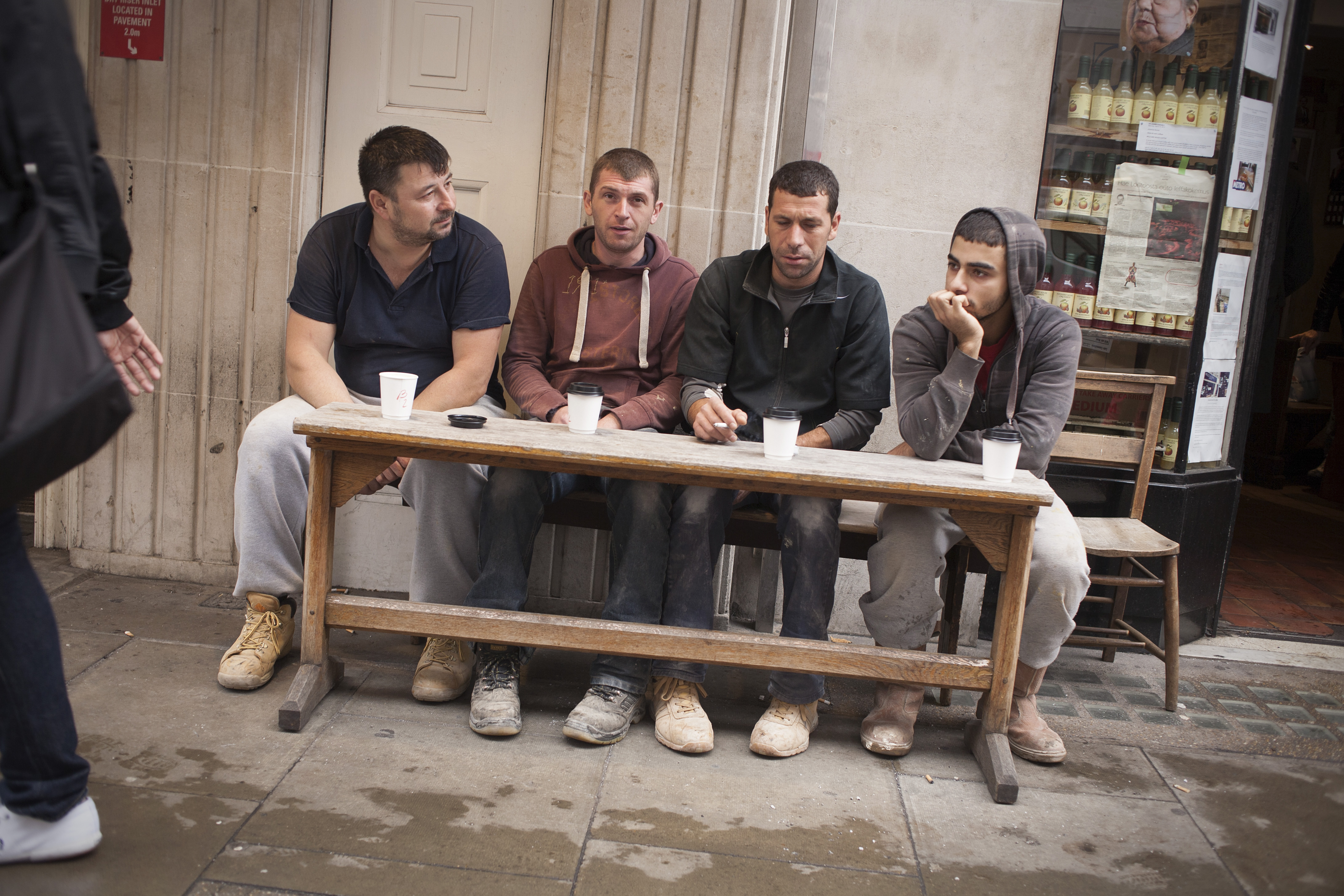How Swiss and British migration debates differ

A heated debate is currently taking place in Britain about an expected influx of workers from new European Union member states Bulgaria and Romania. Could an upcoming Swiss vote on immigration caps have any bearing on the issue?
In both Switzerland and Britain there is considerable scepticism towards the EU among parts of the population, and the free movement of people which it promotes looms large in public debate in both countries. As of January 1 Romanians and Bulgarians have had free access to Europe’s single labour market.
For its part, Switzerland is less than two weeks away from a nationwide vote on re-introducing immigration quotas put forward by the rightwing Swiss People’s Party.
But anyone who thinks the respective political debates are being followed closely in the other country is quite wrong.
Iain Begg, Professorial Research Fellow at the European Institute, London School of Economics and Political Science, says only the specialist business press has so far reported on the controversy in Switzerland.
“It is a footnote. I don’t see it as having a big influence on the debate in Britain,” he says. “It is not an issue that is coming into the headlines.”
Nonetheless the Swiss vote on February 9 could enter the British debate indirectly.
“It would need somebody to seize on it and it is possible that one of the more populist politicians of the UK Independence Party [UKIP] could do that,” Begg told swissinfo.ch.
But should the initiative to restrict immigration be successful in Switzerland, none of the more mainstream parties is likely to try to exploit it, he points out.
The British Conservative Party, the main ruling party, sees its own electoral base undermined by the UKIP, and the latter might have a problem with the credibility of its leader, Nigel Farage. He recently disowned the policy of the nationalist protest movement.

More
Anti-immigration vote challenges EU relations
Similarities
However, certain parallels in the political debates in Switzerland and in Britain over immigration are not hard to spot.
Supporters of a more restrictive policy in both countries warn of a flood of foreigners putting social services and housing under strain and threatening to take away jobs from the indigenous resident population.
But according to Begg, the overwhelming majority of immigrants go to Britain to work, and as taxpayers they contribute to the wellbeing of the country.
Certain sectors of the British economy even rely on immigrants, in particular farmers for the fruit harvest, health care services and also the financial services industry.
Britain joined the EU in 1973, while Switzerland is not a member but has concluded more than 120 bilateral accords with the 28-member bloc.
Both countries are part of the single European market which includes a key accord allowing workers access to the labour market in the union as a whole.
Switzerland is holding a nationwide vote next month on the re-introduction of immigration quotas. It is the first of at least three public ballots in the next few years over restrictions of the free movement of people.
A broader debate in Britain over immigration was launched following the expansion of the EU in 2004.
The British government has made it harder for immigrants from new EU member states to access certain benefits. It has also promised to organise a referendum on Britain’s membership in the EU if the Conservatives win a majority at the next general election.
Media role
Opponents of the immigration restrictions in both countries cite studies which show that immigrants make a positive contribution to the societies into which they move.
Begg mentions the influx of Polish building workers to Britain over the past decade: Initially it was welcomed, but with the onset of the economic downturn anti-immigrant sentiment has grown.
“Some of the rhetoric coming from the UK Independence Party has suggested that people come here and take jobs rather than create new wealth. Because the UKIP threatens the more mainstream Conservatives they have hardened their stance on immigration as well,” he says.
Begg does not deny that local tensions over immigration exist in several regions in Britain, but he believes they are played up into a national debate by the media.
“I think it would be fair to say that some of the newspapers in Britain are not quite as sober as the Neue Zürcher Zeitung and they like to pick up scare stories.”
Cracking down
In what seems to be a striking similarity, both the British and the Swiss governments are planning to introduce restrictions on the benefits immigrants can claim, or have already done so.
Earlier this month the Swiss cabinet pledged to crack down on welfare abuses and tackle the shortage of affordable housing.
The British government of David Cameron recently made it more difficult for new immigrants to access unemployment benefits and the state health system.
But in the view of opponents of immigration caps, both countries risk a conflict with the EU if they implement certain new rules, because they may contradict laws governing freedom of movement for workers.
Ironically, the British government has always stridently defended the European single market, as Begg points out. But it seems to be at pains to implement a pillar of the European treaty: the right of people to move freely across the union’s internal borders.
Joint venture
Begg and Christa Markwalder, a parliamentarian for the centre-right Radical Party in Switzerland, have co-authored a policy statement on immigration issued by the British-Swiss Chamber of Commerce (BSCC).
It is a first collaboration following the recent creation of a task force, primarily to inform members of the BSCC about significant European issues.
Both immigration and banking issues, are topics of interest in both Switzerland and Britain. The authors believe they merit a closer look in order to explore ways to tackle them.
“The idea of the task force is to follow political debates and add our voice to issues both of interest in Britain and Switzerland,” says Markwalder.

In compliance with the JTI standards
More: SWI swissinfo.ch certified by the Journalism Trust Initiative





You can find an overview of ongoing debates with our journalists here. Please join us!
If you want to start a conversation about a topic raised in this article or want to report factual errors, email us at english@swissinfo.ch.